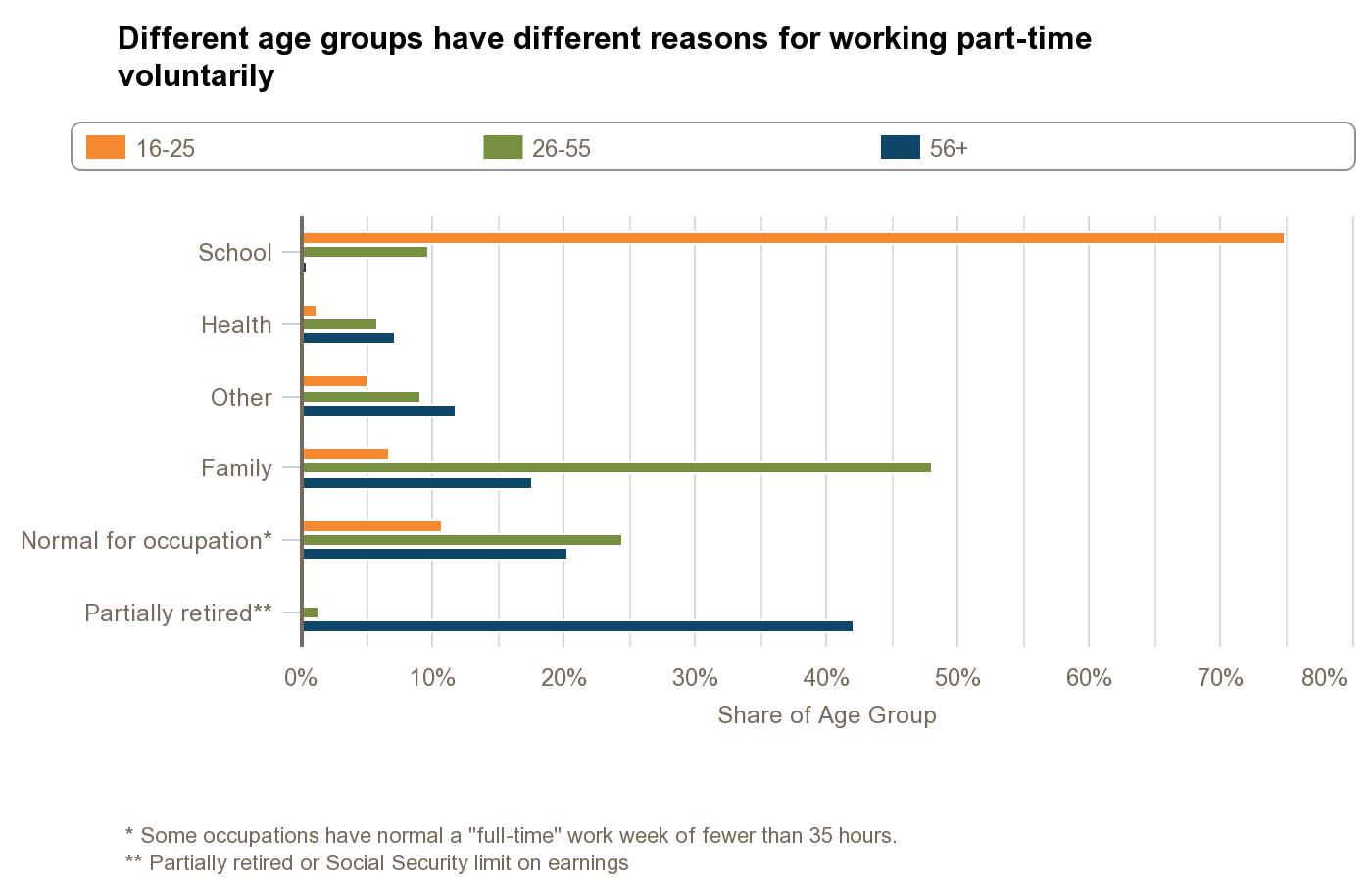According to the Bureau of Labor Statistics, about 15% of American workers are part-time by choice; in other words, they don't want to work full-time. Another 3% of American workers are part-time for economic reasons, meaning they want to work full-time but have either had their hours reduced due to business conditions or simply cannot find full-time employment. These workers are typically young, male, single, and poorly educated.
That's roughly 25.7 million part-time workers total: a big chunk of the American labor force. Although they're part-time, they still pay income and payroll taxes. If these individuals received a Basic Income equivalent to a full-time minimum wage job without having to work at all, how many would choose to continue working? That depends on why they are working part-time to begin with. Here's a handy chart that addresses that very question:
https://www.frbatlanta.org/economy-matters/2015/09/24/who-works-part-time The Federal Reserve Bank of Atlanta: A Story in Five Charts: Who Works Part-Time?
So the vast majority of part-time by choice workers are young adults in school, have family obligations, in poor health, or are older and partially retired. How many of these millions would choose to continue working part-time if they received a BI? Some would, for sure - for the extra money, the experience, or just to get out of the house. But I bet that most of them would simply stop working.
And how about the young, single and poorly educated who are part-time for economic reasons? How many of these individuals would choose to stick with part-time work rather than to seek full-time employment? That could be a rational choice for the poorly skilled and educated with limited earning potential. Assuming that most full-time workers would pay higher taxes to fund the BI, a low-paying full-time job with little future might not be all that appealing when you're already receiving a BI.
Of course, employers could simply pay more to entice low-skilled workers into the job market. But then you introduce a new set of problems, such as inflation. Which would erode the value of a Basic Income.
References:
Charting the Labor Market: Data from the Current Population Survey (CPS) November 3, 2017 US Bureau of Labor Statistics
How Bad Is Involuntary Part-time Work? IZA Discussion Paper No. 9775; February 2016
The Employment Situation - October 2017, Bureau of Labor Statistics
